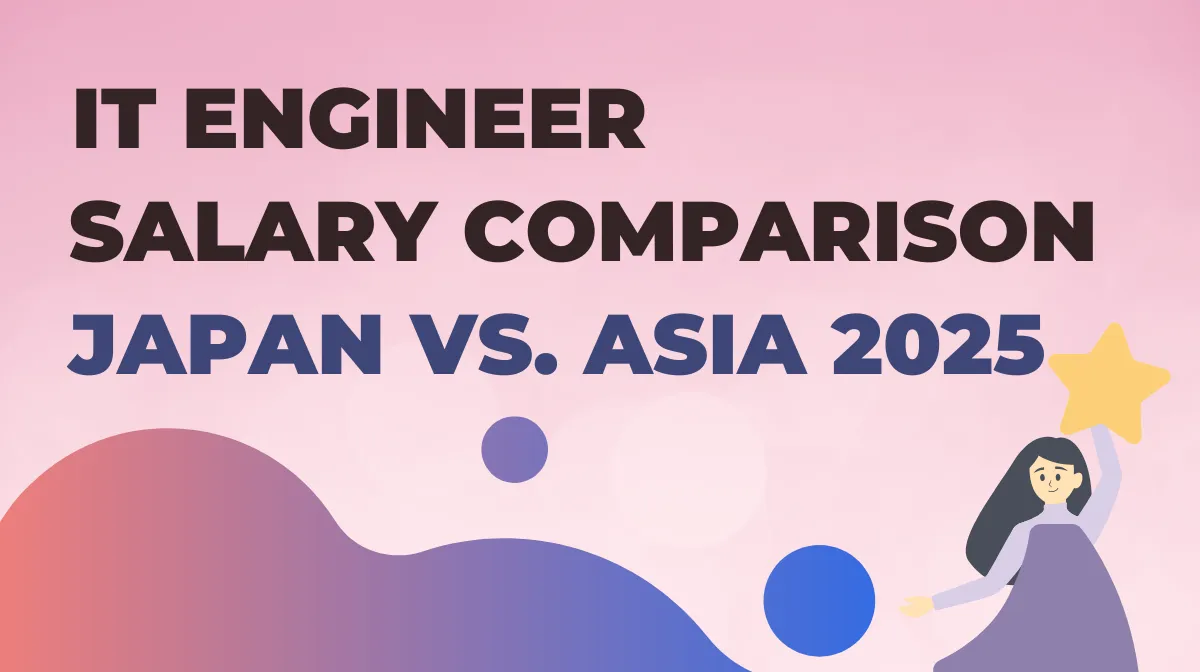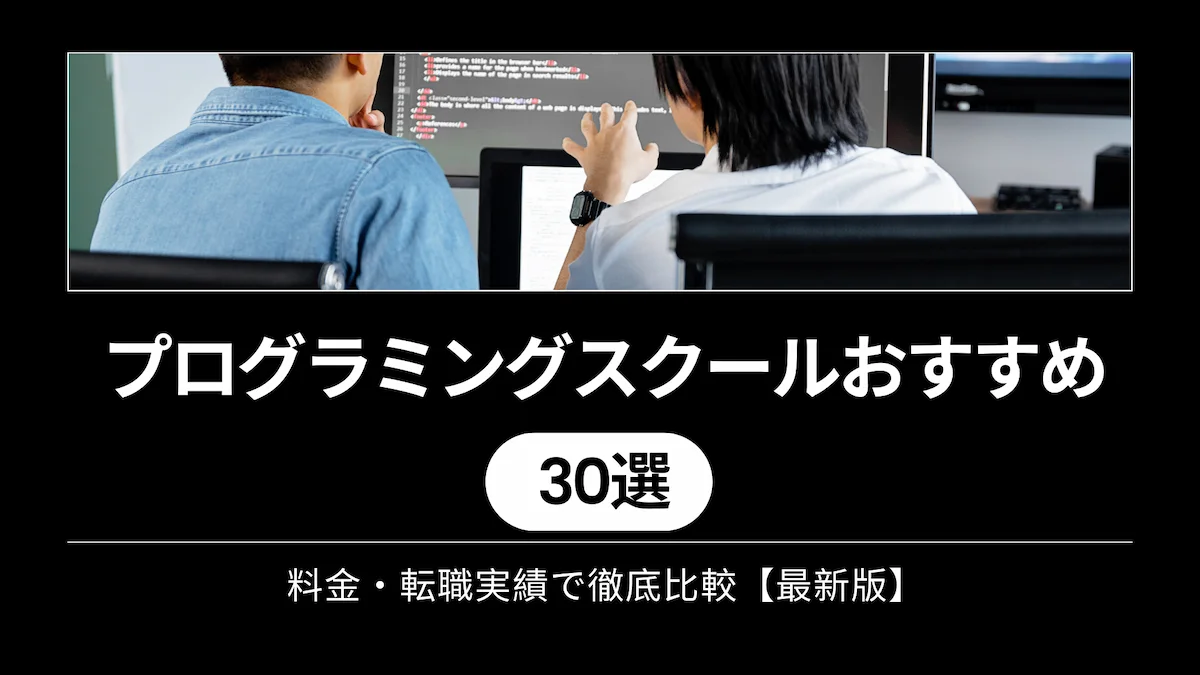For IT engineers considering career opportunities or relocation within Asia, understanding the salary landscape across different countries is a crucial factor in decision-making.
Particularly for foreign engineers considering employment in Japan, a simple numerical comparison is insufficient for making an informed decision.
This article compares average salaries in Japan and other Asian countries while explaining career prospects and actual living standards for IT engineers.
- IT salaries across Asia with Japan’s ranking.
- Real compensation value beyond numbers.
- Career strategies for foreign engineers.
1. [LATEST] Average Salary Rankings Across 12 Asian Countries
![1. [LATEST] Average Salary Rankings Across 12 Asian Countries](http://global.bloomtechcareer.com/wp-content/uploads/2025/05/Average-Salary-Rankings-Across-12-Asian-Countries.webp)
The Asian region has seen remarkable economic growth, with significant salary disparities between countries. Understanding these salary differences is particularly important for aspiring IT engineers or those considering international careers.
Comparison of Average Salaries Between Japan and Major Asian Countries
When comparing average salaries in Japan and major Asian countries in 2025, significant differences emerge between nations.
According to the “Private Sector Salary Statistics Survey” by Japan’s National Tax Agency for 2023(Japanese site), the average salary in Japan is 4.56 million yen (approximately 29,804 USD).
Based on the latest data, Japan still ranks 5th in Asia, but the gap with South Korea and Taiwan has widened. Notably, South Korea’s average annual salary of 6.61 million yen equivalent continues to significantly exceed Japan’s.
Most countries have seen increases in average salaries compared to the previous year, with particularly high growth rates in China (6.1% year-on-year), Taiwan (4.5%), and South Korea (4.1%), indicating structural economic changes within the Asian region. Japan’s growth rate is relatively modest at 2.2%.
| Rank | Country/Region | Average Annual Salary (USD) | Average Annual Salary (JPY) | Source |
|---|---|---|---|---|
| 1 | Singapore | 69,400 | About 10.62 million | Singapore Statistics Bureau (2024) |
| 2 | Hong Kong | 59,800 | About 9.15 million | Hong Kong Government Statistics Department (2024) |
| 3 | South Korea | 43,200 | About 6.61 million | South Korea National Tax Agency (2024) |
| 4 | Taiwan | 35,100 | About 5.37 million | Taiwan Ministry of Finance (2024) |
| 5 | Japan | 29,804 | About 4.56 million | Japan National Tax Agency Private Sector Salary Statistics Survey (2023) |
| 6 | Malaysia | 24,300 | About 3.72 million | Malaysia Statistics Bureau (2024) |
| 7 | China | 22,500 | About 3.44 million | China National Bureau of Statistics (2024) |
| 8 | Thailand | 20,100 | About 3.08 million | Thailand National Statistics Office (2024) |
| 9 | Indonesia | 14,800 | About 2.26 million | Indonesia Statistics Bureau (2024) |
| 10 | Vietnam | 12,500 | About 1.91 million | Vietnam General Statistics Office (2024) |
| 11 | Philippines | 10,600 | About 1.62 million | Philippines Statistics Office (2024) |
| 12 | India | 9,800 | About 1.50 million | India Statistics Bureau (2024) |
The rankings above are based on the latest data from tax authorities in each country. However, it’s important to consider that simple monetary comparisons don’t accurately reflect differences in living standards due to factors such as exchange rate fluctuations, survey methodologies, and purchasing power differences.
Country-by-Country Salary Rankings for IT Engineers
When limited to IT engineering positions, the salary rankings show different trends compared to general average salaries.
| Rank | Country/Region | Average Annual Salary (USD) | Average Annual Salary (JPY) | Source |
|---|---|---|---|---|
| 1 | Singapore | 93,500 | About 14.31 million | Singapore ITDA & Personnel Survey (2024) |
| 2 | Hong Kong | 87,600 | About 13.40 million | Hong Kong ICT Industry Association Annual Survey (2024) |
| 3 | Japan | 75,800 | About 11.60 million | METI IT Company Trends Survey |
| 4 | South Korea | 71,200 | About 10.89 million | Korea Software Industry Association (2024) |
| 5 | Taiwan | 65,400 | About 10.01 million | Taiwan Information Service Industry Association (2024) |
| 6 | China | 58,700 | About 8.98 million | China Software Industry Association (2024) |
| 7 | Malaysia | 47,500 | About 7.27 million | Malaysia Digital Economy Corporation (2024) |
| 8 | Thailand | 43,800 | About 6.70 million | Thailand Software Industry Promotion Agency (2024) |
| 9 | Vietnam | 34,200 | About 5.23 million | Vietnam Software Association (2024) |
| 10 | Indonesia | 31,500 | About 4.82 million | Indonesia ICT Association (2024) |
| 11 | Philippines | 29,800 | About 4.56 million | Philippines IT Business Process Association (2024) |
| 12 | India | 27,600 | About 4.22 million | India NASSCOM (2024) |
IT engineers’ salaries are significantly higher than overall averages, with Japan showing a particularly large difference at 2.5 times the overall average.
Interestingly, while Japan ranks 5th in the overall rankings, it rises to 3rd place when limited to IT engineers.
The most notable point is that in developed countries (Singapore, Hong Kong, etc.), the gap between IT salaries and overall averages is relatively small (1.3-1.5 times), while in developing countries (India, Philippines, Vietnam, etc.), the gap is much larger (2.7-2.8 times).
2. Salary Gaps Between Japan and Other Asian Countries and Their Reasons

The salary gaps observed between Asian countries cannot be accurately understood through simple numerical comparisons.
Foreign IT engineers considering employment in Japan need to understand background factors and impacts on actual living standards.
Differences in Real Income Based on Cost of Living
One of the most important factors when comparing salaries is the cost of living in each country.
According to Mercer’s “2024 Global Cost of Living Survey” there are significant differences in living costs across Asian countries.
| Asia Rank | Global Rank | City | Country/Region |
|---|---|---|---|
| 1 | 2 | Singapore | Singapore |
| 2 | 6 | Hong Kong | China (Special Administrative Region) |
| 3 | 15 | Tokyo | Japan |
| 4 | 19 | Seoul | South Korea |
| 5 | 24 | Beijing | China |
| 6 | 25 | Shanghai | China |
| 7 | 32 | Shenzhen | China |
| 8 | 37 | Taipei | Taiwan |
| 9 | 41 | Guangzhou | China |
| 10 | 49 | Bangkok | Thailand |
| 11 | 67 | Osaka | Japan |
| 12 | 70 | Jakarta | Indonesia |
| 13 | 75 | Ho Chi Minh City | Vietnam |
| 14 | 79 | Mumbai | India |
| 15 | 82 | Manila | Philippines |
| 16 | 85 | New Delhi | India |
| 17 | 93 | Hanoi | Vietnam |
| 18 | 96 | Bangalore | India |
| 19 | 99 | Colombo | Sri Lanka |
| 20 | 108 | Kuala Lumpur | Malaysia |
For example, if Country A has an average annual salary of about 4 million yen and Country B has about 400,000 yen, Country A may appear 10 times higher in a simple calculation. However, when actual living costs are considered, this gap narrows due to significant differences in housing costs and prices.
Considering such living cost differences, engineers in countries with lower prices, especially in Southeast Asia, may enjoy relatively high living standards despite seemingly lower nominal salaries.
Impact of Visas and Residence Status on Salary
For foreign engineers working in Japan, visa and residence status can significantly impact salary.
In Japan, minimum annual salary standards differ by residence status, such as “Engineer/Specialist in Humanities/International Services” or “Highly Skilled Professional.” For the Highly Skilled Professional visa, a point system is employed, and higher salaries make it easier to obtain.
Engineers with “Highly Skilled Professional” visas tend to receive preferential treatment at Japanese companies and often earn higher salaries than those with standard technical visas.
Permanent residents also have greater freedom to change jobs, enabling them to negotiate better conditions, which tends to result in higher salaries.
Reference: Immigration Services Agency: Highly Skilled Professional, Engineer/Specialist in Humanities/International Services, Permanent Residence Permit Application
Impact of Language Skills (Japanese and English) on Salary
Language skills are a crucial factor in salary differences within Asian countries. For foreign engineers working in Japan, Japanese language proficiency significantly affects salary.
At Japanese companies, engineers with high Japanese proficiency tend to receive higher evaluations for the following reasons, which often leads to higher salaries.
- Smoother internal communication
- Ability to interact directly with customers
- Opportunities for promotion and management positions
- Faster adaptation to Japan-specific business processes and culture
JLPT (Japanese Language Proficiency Test) level-based estimated salary differences
- N1 (Near-native level): 15-30% increase in base salary
- N2 (Business level): 5-15% increase in base salary
- N3 and below: Little to no increase, or possible decrease
English proficiency is also important. Engineers with high English skills are particularly valued at Japanese companies with global operations or foreign companies.
Engineers with TOEIC scores above 900 may earn 10-20% higher salaries in some cases.
Reference: Japanese Language Proficiency Test: Certification Guidelines, TOEIC
◆Related Articles
The following article explains the JLPT (Japanese Language Proficiency Test). Please use it as a reference.
Differences in Salary Systems Between Japanese and Foreign Companies
Even within Japan, there are significant differences in salary systems between Japanese companies and foreign companies.
For foreign IT engineers working in Japan, the average annual salary at Japanese companies is around 5-6 million yen, while at foreign companies it can often exceed 6-8 million yen.
However, many foreign engineers choose Japanese companies for their welfare benefits and long-term support, making it important to select a company that suits one’s preferences.
Characteristics of Japanese Companies
- Seniority-based salary systems are mainstream
- Starting salaries are relatively uniform
- Salary increases are gradual but stable
- Retirement benefits and welfare systems are comprehensive
Characteristics of Foreign Companies
- Performance-based salary systems
- Significant salary increases possible based on performance
- Higher base salaries in lieu of retirement systems
- Performance-linked compensation such as incentives and stock options
■日本でエンジニアとしてキャリアアップしたい方へ
海外エンジニア転職支援サービス『 Bloomtech Career 』にご相談ください。「英語OK」「ビザサポートあり」「高年収企業」など、外国人エンジニア向けの求人を多数掲載。専任のキャリアアドバイザーが、あなたのスキル・希望に合った最適な日本企業をご紹介します。
▼簡単・無料!30秒で登録完了!まずはお気軽にご連絡ください!
Bloomtech Careerに無料相談してみる
3. Salary Comparison by IT Skill Set Between Japan and Asian Countries

The IT industry shows significant differences in required expertise, demand, and consequently, salaries across various job types and skill sets.
Here, we compare job roles across Japan and Asian countries.
Backend Engineer Country Comparison
Backend engineers are in stable demand in Japan and many other countries. A notable characteristic is that in countries like China, India, and Vietnam, engineers can earn much higher multiples of the average local salary.
The salaries of backend engineers in Japan are slightly lower than in Singapore and Hong Kong but still high by overall Asian standards.
For backend engineers to earn high salaries in Japan, Japanese language ability is an important factor. Those who are not fluent in Japanese tend to be limited to foreign companies or startups with English-speaking environments.
Countries Where Frontend Engineers Can Earn High Incomes
Frontend engineers are responsible for user interface development, involving both visual design and user experience.
A characteristic of frontend engineers is the good compatibility with remote work, making it relatively easy to work across borders.
There is an increasing number of engineers who physically stay in Japan while working remotely for companies in Singapore or Hong Kong, allowing them to earn higher incomes.
In Japan, frontend engineers tend to earn slightly less than backend engineers, but those with specialized knowledge in UX design and accessibility are highly valued.
Data Scientists and AI Engineers: Japan vs. Other Countries
Data scientists and AI engineers are among the most in-demand IT professions currently.
The market for data scientists and AI engineers in Japan is rapidly expanding, with particularly high demand in manufacturing, finance, and healthcare sectors.
Japanese companies are increasing their investment in these specialists to promote automation and digital transformation.
To earn a high income as a data scientist or AI engineer in Japan, not only programming skills but also knowledge of statistics and mathematics, as well as the ability to understand business challenges, are required.
Engineers with these combined skill sets can potentially earn over 10 million yen annually in the Japanese market.
Salary Gaps for Project Managers and IT Management Positions
IT project managers and technical management positions require both technical and management skills.
A characteristic of management positions is that salary gaps by country and region tend to be larger than for engineering positions.
IT management positions in Japan have relatively high salary levels, but the promotion speed tends to be slower. In Japanese companies, it typically takes 8-10 years of experience to become a manager.
For foreign engineers aiming for IT management positions in Japan, high Japanese language ability and understanding of business culture are essential.
■Read Along With This
The following article provides a detailed explanation of software engineer salaries in Japan, including average annual income and market trends.
4. Comparison of Benefits and Work Environments Between Japan and Asian Countries

Salary alone cannot determine the total value of a working environment.
For foreign IT engineers, benefit systems and work environments are important considerations when making career choices.
Country-by-Country Comparison of Social Insurance and Tax Burdens
Social insurance systems and tax burdens directly impact take-home income.
| Country | Income Tax Rate (Estimate) | Social Insurance Premiums (Percentage of Salary) | Healthcare Insurance Quality | Pension System Stability |
|---|---|---|---|---|
| Japan | 5-45% | About 15% (excluding employer contribution) | High | Moderate |
| Singapore | 0-22% | About 20% (CPF) | Moderate | Moderate |
| Hong Kong | 2-17% | About 5% | Moderate | Low |
| South Korea | 6-45% | About 9% | High | Moderate |
| China | 3-45% | About 11% | Moderate | Low |
| Thailand | 0-35% | About 5% | Low | Low |
| Vietnam | 5-35% | About 10.5% | Low | Low |
| India | 5-30% | About 12% | Low | Low |
A notable characteristic of Japan is its comprehensive social insurance system. The national health insurance system provides high-quality medical services at relatively low cost, and the pension system is also well-established.
However, the combined burden of income tax and social insurance premiums is relatively high, with tax burdens increasing progressively as income rises.
Foreign IT engineers working in Japan are generally required to join the social insurance system, like Japanese nationals, if they hold a work visa valid for more than one year.
Actual Work Value Based on Paid Leave and Holidays
Working hours and leave systems are important factors when considering the real value of labor.
| Country | Statutory Annual Paid Leave | Public Holidays | Paid Leave Utilization Rate | Statutory Weekly Working Hours |
|---|---|---|---|---|
| Japan | Minimum 10 days to maximum 20 days | About 16 days | About 50-60% | 40 hours |
| Singapore | 7-14 days | 11 days | About 80% | 44 hours |
| Hong Kong | 7-14 days | 17 days | About 75% | 44 hours |
| South Korea | 15-25 days | 15 days | About 70% | 40 hours |
| China | 5-15 days | About 11 days | About 60-70% | 40 hours |
| Thailand | 6 days or more | 13 days | About 70% | 48 hours |
| Vietnam | 12-16 days | 10 days | About 75% | 48 hours |
| India | 12-24 days | About 16 days | About 65% | 48 hours |
Japan has a relatively high number of statutory paid leave days, but the actual utilization rate tends to be low compared to other Asian countries. On the other hand, the number of public holidays is high, and combined with the five-day work week, the total annual holidays amount to around 120 days.
Many companies in Japan’s IT industry offer unique leave systems such as “refresh leave” or “anniversary leave,” and large IT companies and global companies may have more than 130 annual holidays.
Impact of Overtime Culture and Working Hours on Income
Overtime culture and attitudes toward working hours vary greatly among Asian countries.
| Country | Average Overtime Hours (Monthly) | Common Overtime Pay Trends | IT Industry Overtime Trends |
|---|---|---|---|
| Japan | About 25-30 hours | Fixed overtime allowance system is common | Slightly more than industry average |
| Singapore | About 20 hours | Many managers receive no overtime pay | Relatively low |
| Hong Kong | About 30 hours | Few clear regulations | High |
| South Korea | About 20 hours | Regulated by law | On par with industry average |
| China | About 40 hours | Often no overtime pay | Very high (996 culture) |
| Thailand | About 15 hours | Regulated by law | Relatively low |
| Vietnam | About 20 hours | Regulated by law | Relatively low |
| India | About 35 hours | Few clear regulations | High |
In Japan’s IT industry, many companies adopt a “fixed overtime allowance” system, where a certain amount of overtime pay is included in the base salary.
In China’s IT industry, there exists a “996” work culture (9 am to 9 pm, 6 days a week), though improvement efforts have been seen in recent years.
Due to work style reforms in Japan, there has been progress in reducing overtime hours and promoting the use of paid leave in recent years.
Reference: Ministry of Health, Labour and Welfare: Monthly Labour Survey
Remote Work Possibilities and Flexible Work Arrangements
Since the COVID-19 pandemic, remote work and flexible work arrangements have become global trends.
In Japan’s IT industry, the adoption of remote work was slow before the pandemic, but it is now rapidly spreading, especially among foreign IT companies and major tech companies.
However, remote work may still not be mainstream at small and medium-sized enterprises or traditional system integrators.
For foreign IT engineers working in Japan, the possibility of remote work is an important consideration.
Especially for those with limited Japanese language skills, remote work at global companies or startups with English-speaking environments may reduce language barriers.
Reference: Ministry of Internal Affairs and Communications: Telework Promotion
■日本でエンジニアとしてキャリアアップしたい方へ
海外エンジニア転職支援サービス『 Bloomtech Career 』にご相談ください。「英語OK」「ビザサポートあり」「高年収企業」など、外国人エンジニア向けの求人を多数掲載。専任のキャリアアドバイザーが、あなたのスキル・希望に合った最適な日本企業をご紹介します。
▼簡単・無料!30秒で登録完了!まずはお気軽にご連絡ください!
Bloomtech Careerに無料相談してみる
5. Career and Salary Prospects for Foreign IT Engineers in Japan

In Japan’s IT industry, demand for foreign engineers is increasing amid ongoing talent shortages.
For foreign IT engineers building careers in Japan, understanding Japan-specific business practices and promotion systems is important.
Salary Increase Patterns for Foreign Engineers in Japanese Companies
Let’s examine salary increase patterns for foreign IT engineers by company type.
While traditional Japanese companies show somewhat stronger seniority influences, performance-based evaluation is mainstream at foreign companies and global Japanese companies, allowing for significant salary increases in a short period based on achievements.
However, even at Japanese companies, changes are being seen with more adopting global standards.
Example Salary Increase Pattern at Traditional Japanese Companies
- Years 1-3: Based on seniority system, annual regular increases of about 3-5%
- Mid-career (Years 4-7): Promotion to team leader level, about 10-15% increase
- Veteran (Year 8+): Promotion to section manager, about 15-20% increase
Example Salary Increase Pattern at Global Japanese Companies
- Years 1-3: Based on performance evaluation, annual increases of about 5-8%
- Mid-career (Years 4-7): Promotion to project leader, about 15-20% increase
- Veteran (Year 8+): Promotion to manager, about 20-30% increase
Example Salary Increase Pattern at Foreign IT Companies
- Years 1-3: Based on performance evaluation, annual increases of about 8-12%
- Mid-career (Years 4-6): Promotion to senior engineer, about 20-30% increase
- Veteran (Year 7+): Promotion to manager, about 30-40% increase
Correlation Between Years of Service in Japan and Salary Growth
The relationship between years of service and salary growth for foreign IT engineers in Japan varies by company type and job position.
For foreign engineers, improving Japanese language ability tends to significantly contribute to salary increases.
It’s not uncommon for salary to increase by 10-15% when Japanese ability improves from N2 to N1 level.
Example for Backend Engineers
- New graduate/Less than 1 year experience: 4.5-5.5 million yen
- 1-3 years experience: 5.5-6.5 million yen (annual increase rate of about 7-10%)
- 4-7 years experience: 6.5-8 million yen (annual increase rate of about 5-8%)
- 8-10 years experience: 8-10 million yen (annual increase rate of about 4-7%)
Example for Data Scientists/AI Engineers
- New graduate/Less than 1 year experience: 5-6 million yen
- 1-3 years experience: 6-7.5 million yen (annual increase rate of about 8-12%)
- 4-7 years experience: 7.5-9.5 million yen (annual increase rate of about 6-9%)
- 8-10+ years experience: 9.5-12 million yen (annual increase rate of about 5-8%)
Value of Japanese Work Experience in Post-Repatriation Careers
Work experience in Japan holds significant value for careers after returning to one’s home country or relocating elsewhere.
Experience in Japan is valued not only for technical skills but also for soft skills acquired from Japan’s unique business culture, quality control practices, and teamwork.
Learning Japanese approaches to work, particularly “craftsmanship” and “commitment to quality,” can be strengths in a global career.
Cases where Japanese work experience holds particular value
Positions at overseas branches of Japanese companies
- Bridge engineers handling communication with Japanese headquarters (Salary premium: +20-30%)
- Project managers who understand Japanese business practices (Salary premium: +15-25%)
Positions at local companies doing business with Japanese firms
- Technical leads for Japan-oriented projects (Salary premium: +10-20%)
- Consultants handling Japanese clients (Salary premium: +15-25%)
Future Prospects for Foreign Engineers in Japan’s IT Industry
Japan’s IT industry faces serious talent shortages, and demand for foreign engineers is expected to continue increasing.
According to Ministry of Economy, Trade and Industry estimates, Japan will face a shortage of about 790,000 IT professionals by 2030.
Fields with particularly high future potential in Japan’s IT industry
- DX (Digital Transformation) related
- AI and machine learning
- Cybersecurity
- Mobile and web development
In these fields, foreign engineers’ technical capabilities and global perspectives are particularly valued.
The Japanese government is also strengthening institutional support to promote the acceptance of highly skilled foreign professionals, including relaxing requirements for “Highly Skilled Professional” visas and accelerating permanent residency acquisition.
Foreign engineers with advanced IT skills can expect diverse career paths, such as shifting from specialized technical positions to management roles, leading global teams, or careers as global talent moving between overseas and Japanese offices.
6. Strategies for Foreign IT Engineers to Earn High Incomes in Japan

To earn high incomes as IT engineers in Japan, it’s necessary to not only enhance technical skills but also understand and adapt to Japan’s unique business environment and culture.
How to Adapt to Japanese Corporate Culture and Enhance Evaluation
In Japanese companies, evaluation considers not only technical skills but also “contribution to the team” and “cooperativeness”
Especially in Japanese companies, focusing on these aspects can be a shortcut to salary increases.
Adapting Communication Style
- Practicing “ho-ren-so” (report, contact, consult)
- Understanding indirect expressions (interpreting the true meaning of phrases like “I’ll consider it” or “That’s difficult”)
- Attention to non-verbal communication
Practicing Team-Oriented Work
- Demonstrating commitment to contributing to team results, not just individual achievements
- Taking initiative in supporting colleagues and sharing knowledge
- Showing willingness to work with the team during critical phases
Visualizing Expertise
- Sharing specialized knowledge through internal study sessions and technical presentations
- Actively writing technical blogs or preparing internal documentation
- Making problem-solving processes transparent and sharing them with the team
In-Demand IT Skills in Japan
It’s also important to understand which skills are particularly in demand in the Japanese IT market and likely to lead to higher incomes.
| Skill Area | Particularly In-Demand Skills | Average Salary Increase Effect | Future Potential Forecast |
|---|---|---|---|
| Cloud Technology | AWS, Azure, GCP, cloud-native development, etc. | +15-25% | ★★★★★ |
| AI/Machine Learning | Python, TensorFlow, PyTorch, natural language processing, etc. | +20-30% | ★★★★★ |
| Data Science | SQL, R, data visualization, big data processing, etc. | +15-25% | ★★★★★ |
| Cybersecurity | Network security, vulnerability assessment, SIEM, etc. | +20-30% | ★★★★★ |
| DevOps/SRE | CI/CD, container technology, Kubernetes, monitoring, etc. | +15-25% | ★★★★ |
| Mobile Development | Swift, Kotlin, React Native, Flutter, etc. | +10-20% | ★★★★ |
| Blockchain | Solidity, smart contracts, Web3, etc. | +15-25% | ★★★ |
| Business Systems | SAP, Salesforce, Oracle, etc. | +10-20% | ★★★ |
| Frontend | React, Vue.js, Angular, TypeScript, etc. | +10-15% | ★★★★ |
| Backend | Java, C#, Go, Python, Ruby, Node.js, etc. | +5-15% | ★★★★ |
In the Japanese IT market, skills in specialized niche technical areas tend to be particularly highly valued.
Additionally, “T-shaped talents” combining multiple skills are especially prized.
How to Choose Companies Advantageous for Foreign IT Engineers
To earn high incomes, foreign IT engineers need to choose companies and industries that match their skills and experience.
When job hunting or changing jobs, it’s important to comprehensively evaluate factors such as diversity initiatives, evaluation systems, career paths, and work flexibility, not just salary.
Company Types Advantageous for Foreign Engineers
- Foreign IT companies: Performance-based, English environment, global evaluation standards, etc.
- Japanese IT companies with global operations: Both Japanese and English environments, active recruitment of global talent, etc.
- IT startups: Small elite teams, skill-focused, flexible work arrangements, etc.
Japan-Specific Approaches for Successful Salary Negotiation
Salary negotiation with Japanese companies requires a different approach than in Western countries. While salary negotiation is a sensitive issue in Japanese business culture, success rates increase with appropriate approaches.
Especially for foreign engineers, clearly demonstrating how their international experience and global perspective can provide value to the company is important.
Basic Approach to Salary Negotiation in Japanese Companies
Focus on demonstrating value rather than direct monetary negotiation
- Specifically show how your skills and experience can contribute to the company
- Approach with “I can provide this value” rather than “I want this amount”
Negotiate with long-term relationships in mind
- Mention long-term career paths and growth opportunities rather than just short-term compensation
- Demonstrate loyalty to the company and long-term commitment
Effective Negotiation Materials
- Objective data on market value (market rates for engineers with similar skill sets)
- Specific achievements and contributions (quantifiable results)
- Unique skills and strengths (international experience and language skills that Japanese engineers typically don’t have)
Negotiation Techniques for Japanese Companies
- Present desired amount as a range rather than a single point
- Consider benefits beyond salary (remote work, flex-time, educational support, etc.)
- Consult informally with direct supervisors or HR representatives in advance
7. Success Stories and Experiences of Foreign IT Engineers

Learning about actual success stories can be a valuable reference for foreign IT engineers.
Here are examples of foreign IT engineers thriving in Japan.
Career Paths of Foreign Engineers Who Successfully Increased Their Income
Case 1: Chinese Full-Stack Engineer Mr. L (Early 30s)
Career Path
- After graduating from a Chinese university, worked at an IT company in Beijing for 2 years
- Studied at a Japanese language school for 1 year, then joined a Japanese SIer (initial salary: 4.2 million yen)
- Gained experience in multiple projects over 3 years, obtained JLPT N1 and Fundamental Information Technology Engineer certification
- Changed jobs to a startup (salary: 5.5 million yen) and worked there for 2 years
- Moved to a foreign company, with salary increasing from 8 million yen to 10 million yen in 2 years
Success Factors
- Focused on acquiring Japanese language skills
- Developed broad skills spanning frontend, backend, and infrastructure
- Prepared to demonstrate specific achievements with numerical data
- Demonstrated leadership in international teams
Case 2: Indian Backend Engineer Mr. A (Late 30s)
Career Path
- Worked as a Java engineer at a major Indian IT company for 4 years
- Transferred to the company’s Japan branch (salary: 5.5 million yen)
- Changed jobs to a major Japanese IT company after 2 years (salary: 6.5 million yen)
- Obtained AWS Certified Solutions Architect certification
- Changed jobs to a foreign cloud vendor, with salary increasing from 9.5 million yen to 12 million yen as a tech lead
Success Factors
- Enhanced specialization in backend development
- Limited Japanese language study to what was necessary for work, differentiating through technical expertise
- Early adoption of cloud technologies
- Speaking at international conferences
Income Comparisons from Those with Work Experience in Both Japan and Their Home Countries
Mr. W from China (Late 30s)
“In Shanghai, my annual income was about 4 million yen, but in Japan it’s 7.5 million yen. While Japan seems higher in simple comparison, considering living costs, the actual living standard isn’t much different. Japan offers higher job stability, and work-life balance has been improving.”
Mr. N from Vietnam (Late 20s)
“In Ho Chi Minh City, my monthly salary was about 250,000 yen, but in Japan my annual income is 5 million yen. Since Vietnam’s living costs are about one-third of Japan’s, my purchasing power has improved about twofold in Japan. Working in Japan has allowed me to participate in global companies’ projects and grow technically.”
Career Strategies of Foreign IT Leaders Thriving in Japanese Companies
Case 1: Mr. K from South Korea (Early 40s, Project Manager)
Career Strategy
- Studied at a Japanese graduate school, acquiring high Japanese language proficiency
- Worked on projects involving Japan-Korea business at a major SIer
- Leveraged bilingual strengths to excel in collaborative projects with Korean companies
- Advanced to management position over 10 years
Success Points
- Positioning language skills and cultural background as strengths
- Career formation with a long-term perspective
- Strengthening communication skills and leadership
- Building internal networks
Case 2: Mr. C from Taiwan (Late 30s, Technical Director)
Career Strategy
- Transferred from a Taiwanese IT company to a Japanese company’s Taiwan branch
- Volunteered for transfer to Japanese headquarters, participating in global expansion projects
- Utilized multilingual abilities to bridge Japanese headquarters and overseas offices
- Promoted to Technical Director
Success Points
- Leveraging familiarity with business customs in both home country and Japan as a strength
- Achieving results in high-visibility projects
- Choosing a career path as a technical specialist
- Continuous improvement of Japanese language skills
8. Insights on Working Styles from Average Salary Rankings in Japan and Asian Countries
Through comparing salaries between Asian countries and Japan, we’ve seen the importance of multiple perspectives beyond simple numbers, including living costs, work environments, and career prospects.
While Japan remains an attractive work destination for foreign IT engineers, new work styles are expanding through globalization and the spread of remote work.
The key to success is selecting an environment that matches your skills and preferences, and building a sustainable career path.






















